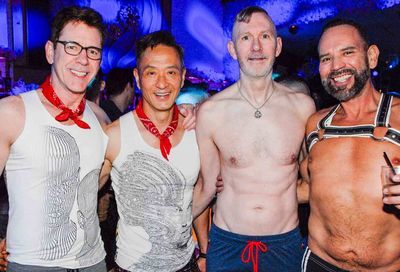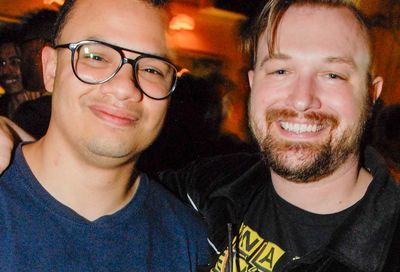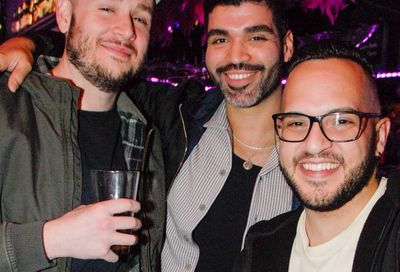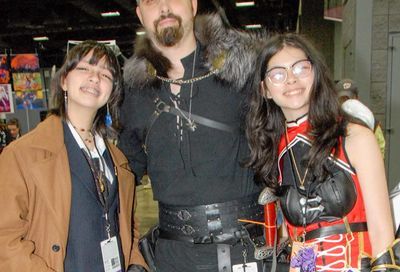Confronting Biased Policing
Community-MPD partnerships offer hope for a better D.C.
Police reformers should never be confused with police opponents. Reformers seek changes in policies and procedures, accountability for misconduct, and community-based policing that is about real relationships with officers and not just public relations. Opponents, by contrast, are so wedded to their mistrust that they say demonstrably false things like, “All police are the same,” and, “There’s been no progress in 50 years.”
In fact, the once-routine entrapment of gay men by D.C. vice cops is long gone thanks to challenges begun 50 years ago by Frank Kameny and pressed in the 1970s by the Gay Activists Alliance using the empowerment of D.C. citizens by Home Rule. The creation of the Metropolitan Police Department’s Gay and Lesbian Liaison Unit (GLLU) in 2000 brought a new era. Specialized advocacy groups such as Gays and Lesbians Opposing Violence (GLOV) and DC Trans Coalition (DCTC) provide additional resources for community-police cooperation.
Nonetheless, recent crimes have exposed a gulf between policy and practice in the protection of LGBT citizens. Two shootings aimed at transgender women, one of them fatal, near D.C.’s eastern edge were a grim reminder of years of unsolved anti-trans murders. And the initial refusal by police to take a crime report or arrest a culprit after a hate-driven assault against five lesbians in the city’s heart showed the need for a more active role by GLLU.
One assailant in the anti-lesbian assault on July 30 was arrested last week after a GLLU officer became involved. Police Chief Cathy Lanier ordered an investigation into the inaction of the officers who initially responded. Lanier is also meeting with several activists who work on public safety issues. Her responsiveness is encouraging.
MPD has a 10-page General Order on “Handling Interactions with Transgender Individuals” dated Oct. 16, 2007. It includes this: “Members shall not solely construe gender expression or presentation as reasonable suspicion or prima facie evidence that an individual is or has engaged in prostitution or any other crime.” Yet one activist’s recent acquittal following an arrest for solicitation suggests that transgender women are still targeted for entrapment. The Chief’s Prostitution Free Zones facilitate anti-trans profiling.
The Biased Policing Task Force, renamed the Fair and Inclusive Policing Task Force, was discontinued by Lanier three years ago. I served on it along with representatives from ACLU, NAACP and others. It should be reinstated and include transgender representation.
A fully staffed GLLU core group is needed as long as anti-LGBT bias shows up in the police ranks. A.J. Singletary of GLOV stated, “GLLU must be engaged on cases involving members of D.C.’s LGBT community at the earliest possible stage.” He also said, “The case on July 30 represents a learning experience for MPD.” Let’s hope so. In 2009, police responding to an anti-gay hate crime in eastern D.C. blamed the victims and denied that GLLU existed. Good policies are useless if ignored with impunity by officers.
Police opponents are sometimes frustrated reformers. While Martin Luther King rightly called the use of violence to achieve justice “a descending spiral ending in destruction for all,” people who are tired of being victims are likely to take action themselves when law enforcement fails.
For the sake not only of justice but of public order and trust, police must demonstrate their commitment to apprehending those whose hatred fuels the disproportionate assault and murder of gay and transgender people. Officers who refuse should face discipline and retraining. Those who don’t shape up should be relieved of their guns and badges.
We cannot let another hot summer go by without addressing the police problems that are showing up on our streets. We are all entitled to equal dignity and equal protection. As Langston Hughes suggested, a dream deferred long enough can explode.
Richard J. Rosendall is a writer and activist. He can be reached at rrosendall@starpower.net.
Support Metro Weekly’s Journalism
These are challenging times for news organizations. And yet it’s crucial we stay active and provide vital resources and information to both our local readers and the world. So won’t you please take a moment and consider supporting Metro Weekly with a membership? For as little as $5 a month, you can help ensure Metro Weekly magazine and MetroWeekly.com remain free, viable resources as we provide the best, most diverse, culturally-resonant LGBTQ coverage in both the D.C. region and around the world. Memberships come with exclusive perks and discounts, your own personal digital delivery of each week’s magazine (and an archive), access to our Member's Lounge when it launches this fall, and exclusive members-only items like Metro Weekly Membership Mugs and Tote Bags! Check out all our membership levels here and please join us today!



















